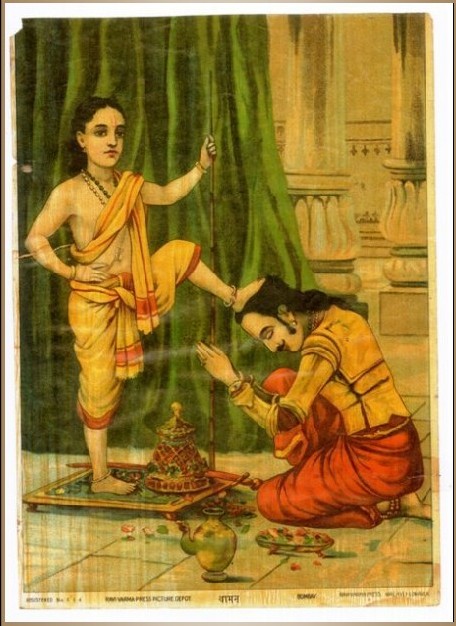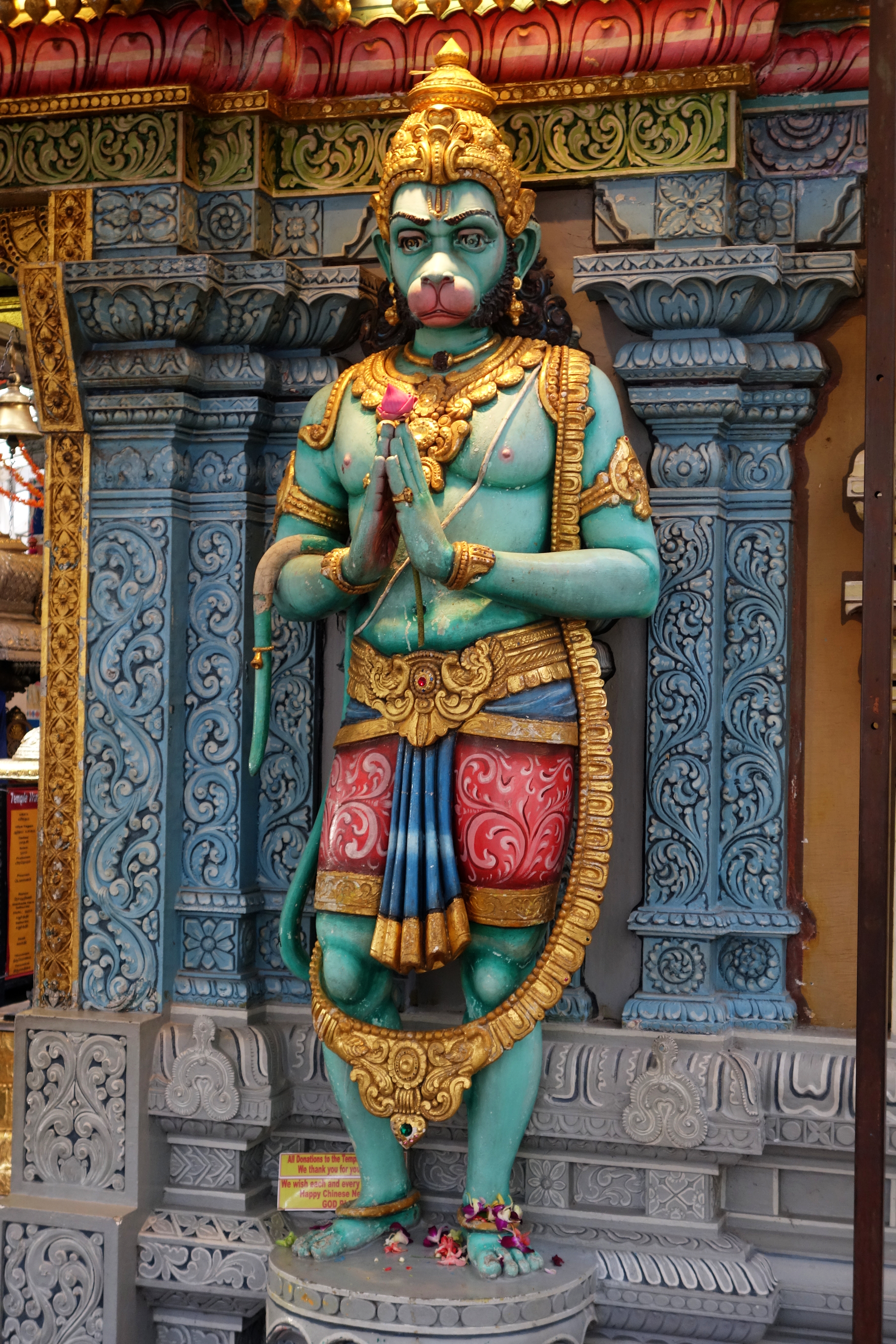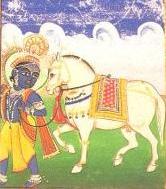|
Chiranjivi
Chiranjivi ( sa, चिरञ्जीवि, ) are the eight immortals who are to remain alive on Earth until the end of the current Kali Yuga, according to Hinduism. The Sanskrit term Chiranjivi means “immortal”, even though it does not correspond with “eternal”. The term is a combination of "chiram" (long) and jivi (lived). Etymology and scriptural context The term is a combination of ''chiram'', or 'permanent', and ''jīvi'', or 'lived'. It is similar to ''amaratva'', which refers to true immortality. At the end of the last Manvantara, a demon attempted to become immortal by swallowing the sacred pages of Vedas, as they escaped from the mouth of Brahma. The scripture was retrieved by the first avatar (Matsya) of Vishnu. Incarnations of Vishnu (Narasimha and Rama) also later fought and killed two asuras, Hiranyakasipu and Ravana, who tried to become immortal through obeisance to Brahma and Shiva, respectively. In one sense immortal can mean "to live eternally until the ... [...More Info...] [...Related Items...] OR: [Wikipedia] [Google] [Baidu] |
Kripa
Kripa ( sa, कृप, Kṛpa, pity), also known as Kripacharya ( sa, कृपाचार्य, Kṛpācārya, Kripa the master), is a figure in Hindu mythology. According to the epic ''Mahabharata'', he was a council member of Kuru Kingdom and a teacher of the Pandava and Kaurava princes. Born to warrior-sage Sharadvan and nymph Janapadi in an extraordinary manner, Kripa and his sister Kripi were adopted by King Shantanu of Kuru Kingdom. Kripa was trained by his birth father and became a great archer like him. Later in the epic, he fought on the Kauravas's side against the Pandavas in the Kurukshetra war and was among the few survivors of the war. Kripa is considered as a '' Chiranjivi'', an immortal being destined to live until the end of the '' Kali Yuga'', the last ''yuga'' (age). According to some texts, he will also become one of the ''Saptarishi''—the seven revered sages—in the next ''Manvantara'', which is a cyclic period of time in Hindu cosmology. Names The ... [...More Info...] [...Related Items...] OR: [Wikipedia] [Google] [Baidu] |
Mahabali
Mahabali (IAST: Mahābalī), also known as Bali, Indrasenan, or Māveli, is a daitya king featured in Hinduism. He is the grandson of Prahlada, and a descendant of the sage Kashyapa. There are many versions of his legend, in ancient texts such as the ''Shatapatha Brahmana'', ''Ramayana'', ''Mahabharata'', and several ''Puranas''. According to Hindu literature, he was banished beneath the earth into the ''patala'' (netherworld) by the Vamana avatar of Vishnu. In Hinduism, Mahabali is considered one of the Chiranjivi, a group of eight immortals. It is believed that he will become the King of Svarga (heaven) in the next ''yuga''. In Kerala, King Mahabali is considered to be the noblest and most prosperous ruler, who transformed his kingdom into a heavenly place. His legend is a major part of the annual festival Onam in the state of Kerala, and Balipratipada (the fourth day of Deepavali and first day of Kartika month) festival in North India and Tulunadu. Hinduism Mahabali is de ... [...More Info...] [...Related Items...] OR: [Wikipedia] [Google] [Baidu] |
Parashurama
Parashurama (), also referred to as Rama Jamadagnya, Rama Bhargava and Veerarama, is the sixth avatar among the Dashavatara of the preserver god Vishnu in Hinduism. He is believed to be one of the ''Chiranjeevis'' (Immortals), who will appear at the end of the ''Kali Yuga'' to be the guru of Vishnu's tenth and last incarnation, Kalki. Born to Jamadagni and Renuka, the Brahmin Parashurama was foretold to appear at a time when overwhelming evil prevailed on the earth. The Kshatriya class, with weapons and power, had begun to abuse their power, take what belonged to others by force and tyrannise people. He corrected the cosmic equilibrium by destroying the Kshatriya warriors twenty-one times. He is married to Dharani, an incarnation of Lakshmi, the wife of Vishnu. He is present in the Ramayana due to the conflict with Rama (the protagonist of the Ramayana) over Shiva's broken bow. He is mentioned in the Mahabharata as the guru of Bhisma, Drona, Rukmi, and Karna. Legend ... [...More Info...] [...Related Items...] OR: [Wikipedia] [Google] [Baidu] |
Hanuman
Hanuman (; sa, हनुमान, ), also called Anjaneya (), is a Hindu god and a divine '' vanara'' companion of the god Rama. Hanuman is one of the central characters of the Hindu epic ''Ramayana''. He is an ardent devotee of Rama and one of the Chiranjivis. Hanuman is regarded to be the son of the wind-god Vayu, who in several stories played a direct role in Hanuman's birth, and considered to be an incarnation or son of Shiva in Shaivism. Hanuman is mentioned in several other texts, such as the epic ''Mahabharata'' and the various Puranas. Evidence of devotional worship to Hanuman is largely absent in these texts, as well as in most archeological sites. According to Philip Lutgendorf, an American Indologist, the theological significance of Hanuman and devotional dedication to him emerged about 1,000 years after the composition of the ''Ramayana'', in the 2nd millennium CE, after the arrival of Islamic rule in the Indian subcontinent.Paula Richman (2010), ''Review: Lut ... [...More Info...] [...Related Items...] OR: [Wikipedia] [Google] [Baidu] |
Markandeya
Bhargava Markandeya ( sa, मार्कण्डेय ) is an ancient rishi (sage) born in the clan of Bhrigu Rishi (Bhargava Brahmins Community). The Markandeya Purana especially, comprises a dialogue between Markandeya and a sage called Jaimini, and a number of chapters in the Bhagavata Purana are dedicated to his conversations and prayers. He is also mentioned in the Mahabharata. Markandeya is venerated within all mainstream Hindu traditions. Today, Markandeya Tirtha, where the sage Markandeya wrote the Markandeya Purana is situated on a trekking route to the Yamunotri Shrine in the Uttarkashi district, Uttarakhand.Yamunotri Temple website. Rescued by Kalant ...
|
Vyasa
Krishna Dvaipayana ( sa, कृष्णद्वैपायन, Kṛṣṇadvaipāyana), better known as Vyasa (; sa, व्यासः, Vyāsaḥ, compiler) or Vedavyasa (वेदव्यासः, ''Veda-vyāsaḥ'', "the one who classified the Vedas"), is a revered sage portrayed in most Hindu traditions. He is traditionally regarded as the author of the ''Mahabharata.'' He is also regarded by many Hindus as the compiler of a number of significant scriptures. As a partial incarnation, Amsa Avatar (aṃśa-avatāra) of Vishnu, he is also regarded by tradition as the compiler of the mantras'' of the Vedas'' into four Vedas, as well as the author of the eighteen ''Puranas'' and the Brahma Sutras. He is one of the seven Chiranjeevis. Name Vyasa's birth name is ''Krishna Dvaipayana'', which possibly refers to his dark complexion and birthplace, although he is more commonly known as "Veda Vyasa" (''Veda Vyāsa'') as he has compiled the single, eternal ''Veda'' into fou ... [...More Info...] [...Related Items...] OR: [Wikipedia] [Google] [Baidu] |
Vibhishana
Vibhishana () is the younger brother of Ravana, the King of Lanka, in the ancient Indian epic Ramayana. Though a rakshasa himself, Vibhishana turned his back on Ravana, and defected to Rama's side, owing to his dharma. After Rama defeated Ravana, the former crowned Prince Vibhishana as the King of Lanka before returning to Ayodhya. Ramayana Prince Vibhishana is portrayed as a pious and pure of heart in the epic. After performing a penance to invoke a boon from Brahma, he begged the deity to always set his mind on the path to righteousness, and nothing more. Vibhishana was the youngest son of the rakshasi Kaikesi and the sage Vishrava, who was himself a son of the sage Pulastya, one of the Prajapati. Vibhishana was the younger brother of the King of Lanka, Ravana, and also the sibling of Kumbakarna. Even though he was born as a rakshasa, he was pious and considered himself a Brahmin, since his father was a sage. Due to Vibhishana's differences with Ravana, and because he ... [...More Info...] [...Related Items...] OR: [Wikipedia] [Google] [Baidu] |
Ashwatthama
In the Hinduism, Hindu epic the ''Mahabharata'', Ashwatthama ( sa, अश्वत्थामा, Aśvatthāmā) or Drauni was the son of guru Drona and Kripi (sister of Kripa, Kripacharya). He was the grandson of the sage Bharadwaja. Ashwatthama ruled the northern region of Panchala, being subordinate to the rulers of Hastinapura. He was a Maharathi (warrior), Maharathi who fought on the Kaurava side against the Pandavas in the Kurukshetra War. He became a Chiranjivi (immortal) due to a curse given to him by Lord Krishna, Krishna. The deceptive plot of Ashwatthama's supposed death led to murder of his grieving father Drona, who was decapitated while meditating for his son's Ātman (Hinduism), soul. He was appointed as the final commander-in-chief of the Kauravas in the Kurukshetra War. Overcome with grief and rage, he slaughtered most of the Pandava camp in a single Night combat, night offensive. He was among the most prominent warriors of the Mahabharata epic, breaching mu ... [...More Info...] [...Related Items...] OR: [Wikipedia] [Google] [Baidu] |
Ravana
Ravana (; , , ) is a rakshasa king of the island of Lanka, and the chief antagonist of the Hindu epic ''Ramayana'' and its adaptations. In the ''Ramayana'', Ravana is described to be the eldest son of sage Vishrava and rakshasi Kaikesi. He abducted Prince Rama's wife Sita and took her to his kingdom of Lanka, where he held her in the Ashoka Vatika. Later, Rama, with the support of vanara King Sugriva and his army of vanaras, launched an invasion against Ravana in Lanka. Ravana was subsequently slain and Rama rescued his beloved wife Sita. Ravana is widely portrayed to be an evil character, though he also has many qualities that make him a learned scholar. He was well-versed in the six shastras and the four Vedas. Ravana is also considered to be the most revered devotee of Shiva. Images of Ravana are seen associated with Shiva at some temples. He also appears in the Buddhist Mahayana text ''Laṅkāvatāra Sūtra'', in Buddhist Ramayanas and Jatakas, as well as in Jain Ra ... [...More Info...] [...Related Items...] OR: [Wikipedia] [Google] [Baidu] |
Brahma
Brahma ( sa, ब्रह्मा, Brahmā) is a Hindu god, referred to as "the Creator" within the Trimurti, the trinity of supreme divinity that includes Vishnu, and Shiva.Jan Gonda (1969)The Hindu Trinity Anthropos, Bd 63/64, H 1/2, pp. 212–226. He is associated with creation, knowledge, and the ''Vedas''. Brahma is prominently mentioned in creation legends. In some ''Puranas'', he created himself in a golden embryo known as the Hiranyagarbha. Brahma is frequently identified with the Vedic god Prajapati.;David Leeming (2005), The Oxford Companion to World Mythology, Oxford University Press, , page 54, Quote: "Especially in the Vedanta Hindu Philosophy, Brahman is the Absolute. In the Upanishads, Brahman becomes the eternal first cause, present everywhere and nowhere, always and never. Brahman can be incarnated in Brahma, in Vishnu, in Shiva. To put it another way, everything that is, owes its existence to Brahman. In this sense, Hinduism is ultimately monotheistic or m ... [...More Info...] [...Related Items...] OR: [Wikipedia] [Google] [Baidu] |
Eternity
Eternity, in common parlance, means Infinity, infinite time that never ends or the quality, condition, or fact of being everlasting or eternal. Classical philosophy, however, defines eternity as what is timeless or exists outside time, whereas sempiternity corresponds to infinite Duration (philosophy), duration. Philosophy Classical philosophy defines eternity as what exists outside time, as in describing timeless supernatural beings and forces, distinguished from sempiternity which corresponds to infinite time, as described in requiem prayers for the dead. Some thinkers, such as Aristotle, suggest the Eternity of the world, eternity of the natural cosmos in regard to both past and future eternal duration. Boethius defined eternity as "simultaneously full and perfect possession of interminable life". Thomas Aquinas believed that God's eternity does not cease, as it is without either a beginning or an end; the concept of eternity is of divine simplicity, thus incapable of be ... [...More Info...] [...Related Items...] OR: [Wikipedia] [Google] [Baidu] |
Hindu Eschatology
Hindu eschatology is linked in the Hindu tradition to the figure of Kalki, or the tenth and last avatar of Vishnu names of the Supreme Being in Hinduism and before the age draws to a close, and Harihara simultaneously dissolves and regenerates the universe. The current period is believed by Hindus to be the Kali Yuga, the last of four ''Yuga'' that make up the current age. It started when Krishna left the Earth in 3102 BC or 5123 years from 2022. Each period has seen a progressive decline in morality, to the point that in Kali Yuga quarrel and hypocrisy are norm. In Hinduism, time is cyclic, consisting of cycles or " kalpas". Each ''kalpa'' lasts for 4.32 billion years and is followed by a ''pralaya'' (dissolution) of equal length, which together make a period of one full day and night of Brahma's 100 360-day year lifespan, who lives for 311 trillion, 40 billion years. The cycle of birth, growth, decay, and renewal at the individual level finds its echo in the cosmic order, yet i ... [...More Info...] [...Related Items...] OR: [Wikipedia] [Google] [Baidu] |








